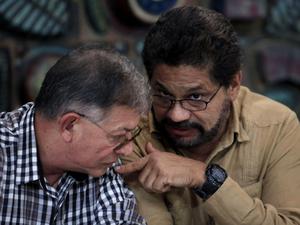Years of war in Colombia have established a political economy based on conflict and contributed to institutional erosion and the consolidation of anti-democratic practices undermining good governance. The deterioration of the democratic principles of the 1991 Constitution began under the administration of Cesar Gaviria (1990 to 1994) and only worsened under the administration of Alvaro Uribe between 2002 and 2010. Over the last decades, the dominant classes and the traditional political parties have managed to erode the democratic aspects of the constitution by incrementally circumscribing the independence of the judiciary and diminishing legislative power while increasing presidential authority and the autonomy and power of the security apparatus of the state. This has happened against the backdrop of the increasing influence of narcotrafficking political organizations (ie. the paramilitaries) over state institutions. Consequently, Uribe's amendment to the 1991 constitution that allowed him a second presidential term and his attempt at a further amendment to allow a third term was only part of a larger trend of dominant coalitions attempting to control the political process. The democratic content of the Constitution has diminished with the 37 changes made since 1991.

Against this extremely brief background, the second round of negotiation between representatives of the Juan Manuel Santos government and delegates of the Marxist Revolutionary Armed Forces of Colombia (FARC) began on June 11 in order to address political reform. The FARC representatives are calling for a constituent assembly not only to reverse the institutional degradation that has occurred since 1991, but also to codify a new socioeconomic, political, and judicial order they hope will emerge from the peace accord. The FARC is aspiring to restructure political institutions in order to limit presidential power and strengthen instruments of representational democracy—primarily the legislature, as well as through the popular elections of the attorney general, public prosecutor, and treasurer. These in addition to reforming the military institution by changing its National Security Doctrine, a residue of the Cold-War era that is still governing its strategy.
Because the Santos government has resisted the idea of invoking a constituent assembly, the FARC has a very long road to go in creating critical popular support that may usher in a new phase in the country’s troubled history and struggling electoral democracy. In a latest and very indicative stance the country's Attorney General Alejandro Ordóñez attacked FARC's demand of a constituent assembly and the entire peace process showing fractures within the Santos government.
Nazih Richani is the Director of Latin American studies at Kean University. He blogs at nacla.org/blog/cuadernos-colombianos.

